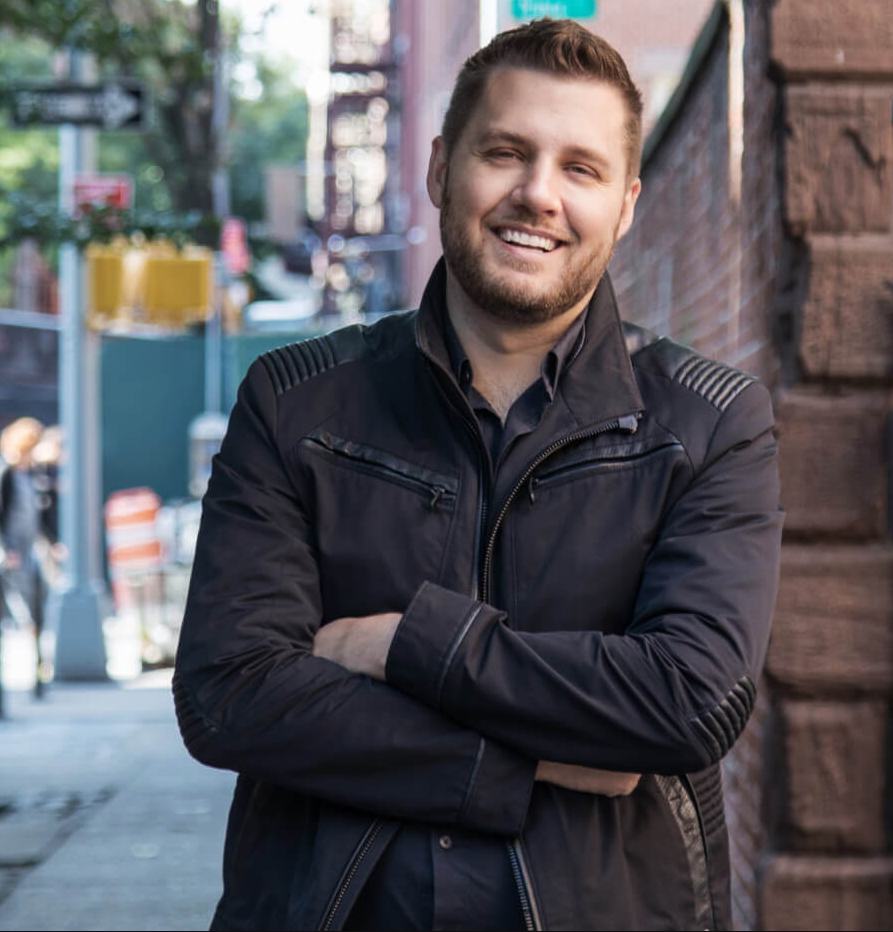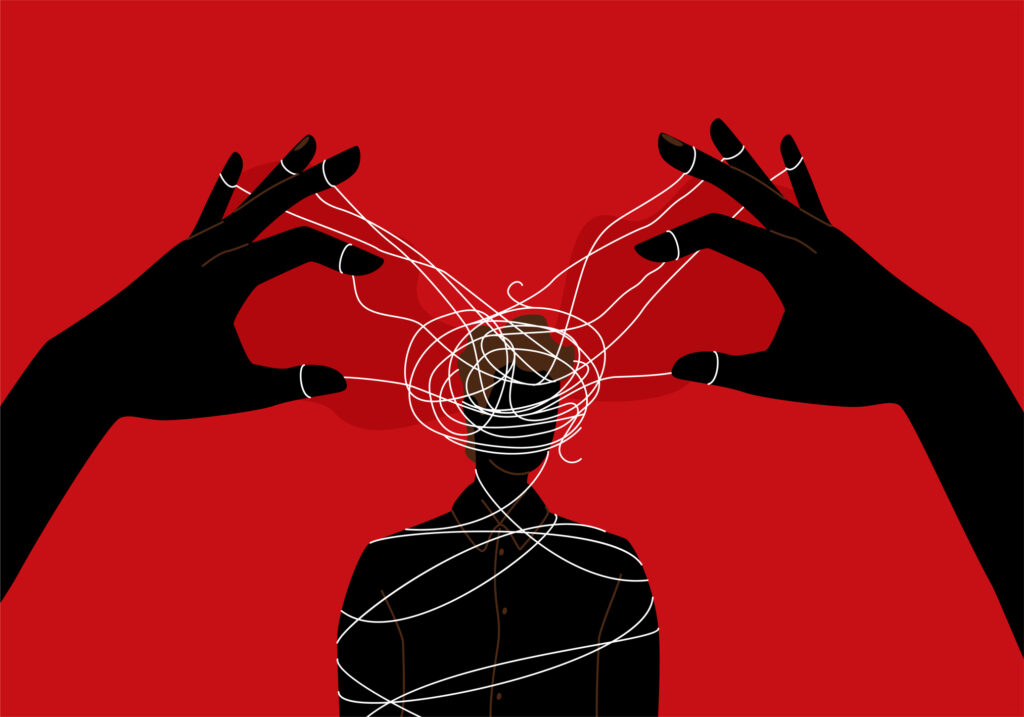When you take risks you need resilience. You need to be able to take the rough with the smooth and not lose yourself when things go wrong. But resilience isn't just about soldiering on – it's deeply entwined with our sense of identity. At least according to the "Law of Avoidance."
"We will avoid something in proportion to how much it can affect our identity."
The Law of Avoidance
So says Mark Manson, best-selling author of "The Subtle Art of Not Giving a F*ck." It's an anti-self-help self-help book that's sold millions of copies, earning Manson legions of adoring fans and a new movie on Netflix.
In the book, Manson tells you that you are not special, chasing a positive mindset is dangerous, and that we should embrace negative emotions and take responsibility for our actions and feelings. These ideas may go against the grain of current trends in self-improvement, but Manson has found a very receptive audience.
The book provides a powerful lesson in resilience, but what does it have to do with identity, exactly?
Manson's Law of Avoidance
Manson describes the above quote as his "Law of Avoidance." Essentially, the idea is that we'll avoid something equal to how it can affect our identity; we are so wedded to our sense of self that we won't step outside that comfort zone.
And it kind of rings true, doesn't it? When I'm faced with anything involving numbers (like dividing up a restaurant check), I freeze up. I work with words; I can't do numbers! I'm likely to say, "Numbers aren't my strong suit – someone else figure it out!" On the more extreme end, I'm unlikely to go skydiving. That's just not me. I don't do that kind of thing.

And Manson's law doesn't just apply to bad, scary or unpleasant things. "You will avoid negative things that threaten your identity like failure, loss, and rejection. But you will also avoid positive things that threaten your identity – even things like success, love, and happiness," says Manson.
I initially struggled to reconcile this idea. Why on earth would we avoid something we enjoy? But then it struck me that it applies to something I'm going through right now.
Avoiding Good Things
I love music. And recently I was invited to go to a festival. The problem was that of the large group of friends going, I only knew one person. The rest of them I'd never even met. So when I was proposed this idea, my instant reaction was, "No way!"
My internal monologue was yelling that I'm a shy introvert. Big groups feel intimidating. What if I don't fit in? What if I feel trapped and like I'm ruining other people's time? I'd much rather stay at home and not go to the hassle.
Fortunately, my inner Mark Manson kicked in and I agreed to go and secured a ticket.
Now, when I really think about it, I know I'm going to have a great time. I love seeing live music, I like meeting people (even if it can be tiring), and I'm excited. And Manson would also remind me that I'm not special – no one else will really care much about me!
How I conceive of my identity (introvert, don't like going out of my comfort zone) can stop me from doing things I enjoy. Manson says, "The more something scares you, the more you should just do it." Instead of being boxed in by your identity, take a step out of your comfort zone and dive in. Let's hope he's right. I'm going this week.

Resilience and Identity
The more I think about it, the more resilience and identity seem to live hand in hand.
Consider the idea of "impostor syndrome," which has struck a chord in recent years. That sense that you've overreached, that you don't deserve to be where you are, and the fear that you'll be "found out." Ironically, this often afflicts the most objectively competent people: it has nothing to do with real ability, just how we see ourselves.
Similarly, fear of failure and fear of success also plague workers worldwide. You might be so afraid of "failing" that you don't ever take a risk or try something new. Or you might be anxious about the increased responsibility of success and feel like you'll never be able to live up to expectations.
When something threatens our identity we avoid it. And so when we're forced into that situation we don't know how to respond. With his law of avoidance, Manson implores us to embrace discomfort, stop chasing external validation, and chose a path based on our own values and wishes, one full of risk and uncertainty.
The Resilient Mindset
Many other thinkers have already highlighted and studied the connection between resilience and identity.
Psychologist Susan Kobasa believes that there are three elements to resilience, all of which have to do with how resilient people see themselves. The elements are: challenge, commitment and personal control.
Resilient people see setbacks as challenges, not failures; they are committed to clear goals in work and life; and they don't dwell on what's outside their control – they focus on the things they can affect, rather than dwelling on what they can't (more on this below). All of which Manson draws on in his book.

Another psychologist who believes resilience is based on the stories we tell ourselves is Martin Seligman. He refers to our "explanatory style" in regard to how we respond to setbacks. Do you blame yourself and get consumed with negativity when things go wrong? If so, then this all has to do with how you're explaining the situation to yourself.
In his book "Learned Optimism: How to Change Your Mind and Your Life," Seligman uses the ABC technique to help reframe the situation. It stands for Adversity, Beliefs and Consequences. When you're struck with adversity, you form beliefs, which have consequences.
So, maybe you're 20 minutes late to a meeting you organized: you think to yourself "I'm a terrible employee/boss," so your confidence dives, and your week is ruined as you mull on your failure. Seligman invites us to dispute the beliefs we form – are you really a terrible boss or were you unlucky? Did you just make a simple mistake? It doesn't have to be existential.
Are You in Control?
Manson tells us that life will always suck sometimes; the key is to accept it. Part of the remedy to the law of avoidance is taking responsibility for how we respond to negative things, embracing the associated negative emotions, and doing what we can within our own sphere of influence. The more we take responsibility, the better the outcome.
Psychologist (yes, another one!) Julian B. Rotter described this as our "locus of control." In the 1950s, he wrote that we all sit somewhere on a sliding scale – those of us with an internal locus of control and those with an external locus of control. Do you believe that you're responsible for what happens in your life, or think that your life is more governed by external forces outside of your control?

Rotter claimed that those with a more internal locus of control generally have higher resilience, more job satisfaction, better response to feedback, and even better physical health. On the flip side, if you believe you don't have agency in your life, you're more likely to blame others, give up, and not take credit for what you do achieve.
Manson is big on responsibility. We may not have total control over what happens to us, but we do have complete control of how we respond to setbacks. Instead of chasing happiness all the time (and then getting mad and blaming others when things go wrong), the better path is to take responsibility for how we respond to adversity.
(You can take our Locus of Control Quiz to see where you sit on the scale.)
A Flexible Identity
In a recent newsletter, Manson wrote: "The healthiest identity is a flexible identity. The best answer to the question, 'Who am I?' is always 'I don’t know; let’s find out.'"
It might be scary to answer "I don't know." But I think it's also beautiful. It's inviting us to not box ourselves in, to stay curious, and to challenge our assumptions.
By avoiding discomfort, and negative or scary things, Manson says we're avoiding those parts of ourselves we need to challenge. By adopting a "let's find out!" attitude, we create opportunities for growth and to better understand ourselves and improve our resilience – and live a richer, more fulfilling life.
Useful Resources
The Subtle Art of Not Giving a F*ck
Mark Manson's YouTube channel
Mark Manson's Twitter
The following is a curated list of Mind Tools relevant resources (please keep in mind you may need to be a member of the Mind Tools Club to access certain resources):
Developing Resilience
Understanding Your Locus of Control
Overwhelmed at Work
Career Setbacks
Dweck's Fixed and Growth Mindsets
Managing Post-Traumatic Growth
Resiliency (audio interview with Dr Cal Crow)
How to Build Personal Resilience (audio interview with Dr John Nicholson)
The Road to Resilience (infographic)
About the Author:

Matthew has 10 years of experience writing, editing and commissioning online content. As a content editor, he's worked in several industries – including charity, culture and travel – before finding his calling in L&D at Mind Tools, where he creates accessible, timely and engaging content for learners.
The post "Who am I? I don't know: let's find out!" – Mark Manson's Law of Avoidance appeared first on Mind Tools.

0 Commentaires